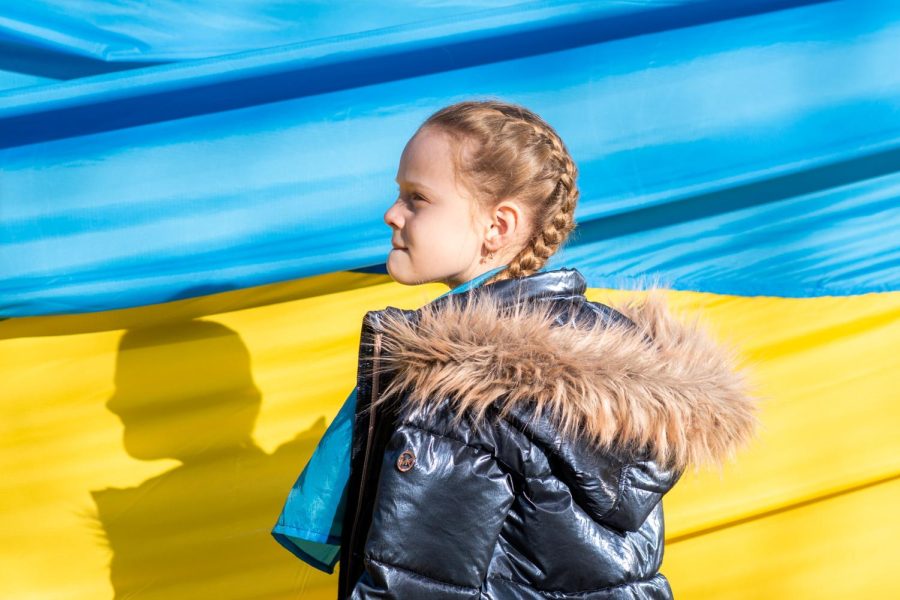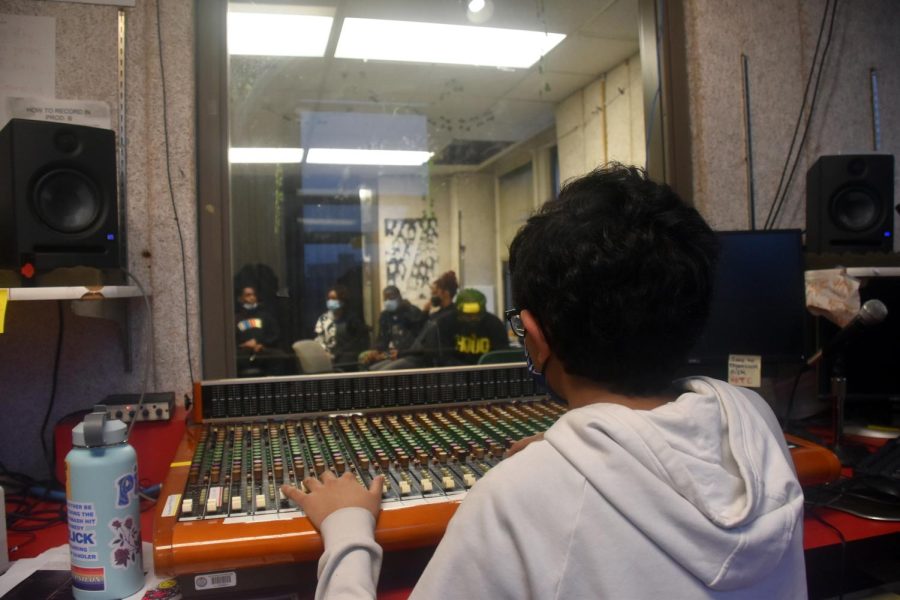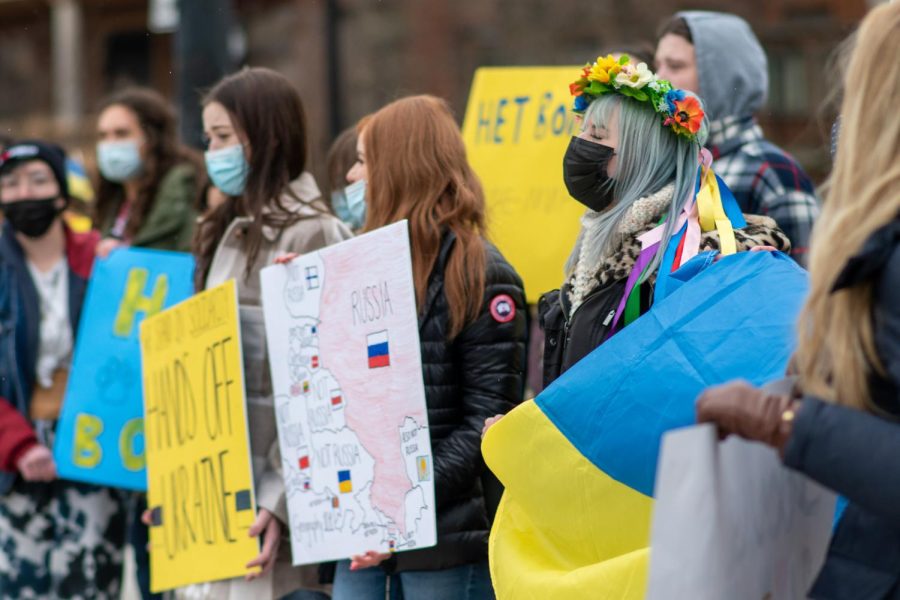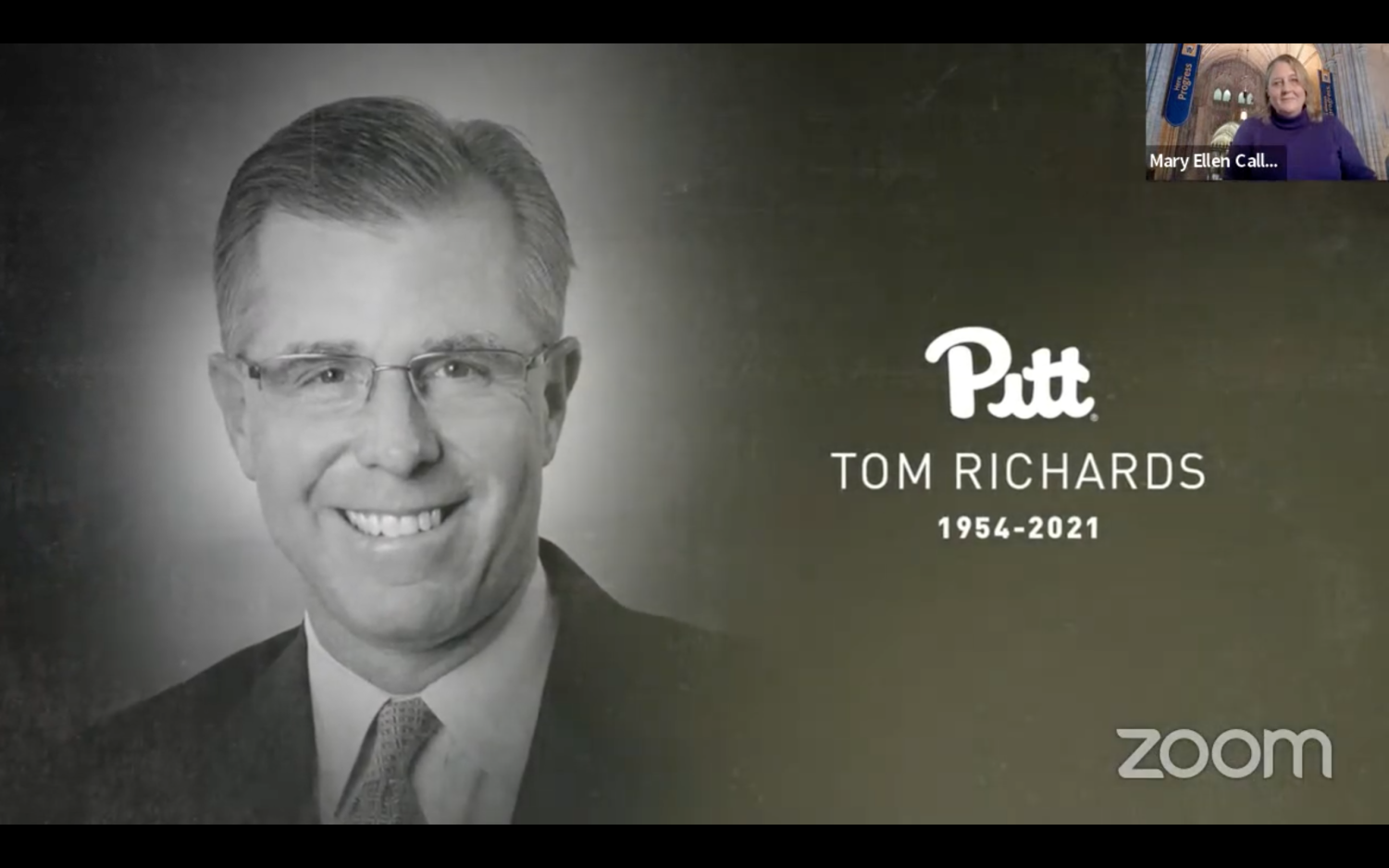Porsha Williams Is Praising Her Love With Simon And Fans Support This
Editorial | Texas attack on trans rights is putting people’s wellbeing at risk
Transgender people have been demonized for a long time, and are often portrayed in a negative light by the media and entertainment industries.
They are often seen and categorized as “other,” and increasingly killed simply for being transgender — and trans people of color are at an even higher risk. A study conducted by the Williams Insitutute at the University of California at Los Angeles found that compared to cisgender people, trans people are more than four times as likely to be victims of a violent crime.
The White House condemned an order issued last Tuesday by Gov. Greg Abbott to have the Texas Department of Family and Protective Services investigate instances of gender-affirming care. The Biden administration said in a statement to ABC News that the “attack on loving parents who seek medical care for their transgender children is dangerous to the health of kids in Texas and part of much larger trend of conservative officials cynically attacking LGBTQI+ youth to score political points.”
The Texas order will not prevent gender transitioning or affirming procedures — which Abbott defines as “child abuse.” Instead, this will lead to more devastating consequences, including a ruinous effect on the mental health of trans people and their families. The Texas order and decisions like it will only make life for trans people inexcusably difficult while they try to live their most authentic and valid existences.
Despite the Biden administration’s disapproval of this order and legislation like it that attacks the rights of trans people, dozens of discriminatory anti-trans bills have been prosped in states across the country just this year. Seventeen anti-trans bills were enacted into law last year while many more were proposed. These figures coincide with 2021 recorded as the deadliest year for trans people on record, where a disproportionate amount of killings occur in the southern part of the country.
With 2022 predicted to potentially be the worst legislative year for trans people, as lawmakers propose and pass more directives and bills that infringe upon their lives, Americans must consider what’s at stake for those that these directives target. If you find yourself making conclusions about trans issues without having ever met or spoken with someone who is transgender, you should reevaluate how your biases and prejudices are affecting not only trans people’s quality of life, but the state of it, too.
The decisions of politicians are not the only thing that matters here — it’s also the opinions of voters that matters, too. We vote these politicians into office and expect them to listen to their constituents, so it’s also our responsibility to be aware of the issues they’re voting on and legislation that’s passing.
Trans people are people and should live a fear-free existence. This is a matter of life or death in some situations, and we must evaluate these decisions as such.
The post Editorial | Texas attack on trans rights is putting people’s wellbeing at risk appeared first on The Pitt News.
https://ift.tt/40wLbrD‘Proud to be Ukrainian’: Hundreds gather Downtown in support of Ukraine
Hundreds of people rallied Sunday evening in downtown Pittsburgh in support of Ukraine in the face of Russia’s recent invasion, waving flags, praying and singing the Ukrainian national anthem. Mayor Ed Gainey was among several speakers present.
The event, organized by the Ukrainian American Youth of Southwestern Pennsylvania, filled Liberty Avenue Park until after sunset. Supporters chanted “Slava Ukraini!” (“Glory to Ukraine!”) and carried signs calling for an end to Russian aggression in Ukraine.

For many, like first-year history major Liv Beckage, this sentiment towards Russia was not new.
“This isn’t just an issue of today,” Beckage said. “This has been an issue for centuries and centuries.”
A Ukrainian religious leader led the crowd in a prayer for peace in both English and Ukrainian, passing the microphone to a young girl who shouted “No more war!”

Andrew Romanchik of Franklin Park, one of the rally’s organizers, said he did not expect Ukraine and Russia to go to war.
“This protest isn’t gonna stop the war,” Romanchik said. “It will take a lot more to stop the war. But what this does show is that not only are we spreading awareness, but the Ukrainian community can unite.”
Christina Petrylo, of Scott Township, was another one of the rally’s organizers. She said she feels supported, even by those who are not Ukrainian.

“I feel really happy that all of us as a community, even though not all of us are Ukrainian … we can all come together and be together and support Ukraine,” Petrylo said.
Gainey said the rally “demonstrated how we can come together to support Ukraine and defend democracy.”
Romanchik said he does not expect a long-lasting impact on Ukraine’s spirit.
“Everyone there is very patriotic, very proud to be Ukrainian and this war. Although it may hurt Ukraine’s infrastructure, it will not hurt Ukraine’s people,” Romanchik said.
The post ‘Proud to be Ukrainian’: Hundreds gather Downtown in support of Ukraine appeared first on The Pitt News.
https://ift.tt/SIWb0iEInside WTPS Radio’s 24-hour broadcast
With 20 more hours of broadcasting ahead of her, senior urban planning major Olivia Marlowe leaned into the microphone Friday evening and spoke.
“Welcome back to the WPTS winter marathon,” Marlowe said. “We’re on our, what, fourth hour?”
Mina Beach, a sophomore English literature major, chimed in.
“Fourth of many. Everyone in this room looks like they’re falling asleep,” Beach said. “Hey! Wake up!”
WPTS Radio, Pitt’s student-operated radio station, broadcasts from the William Pitt Union and transmits from the top of the Cathedral of Learning on 92.1 FM and iHeartRadio. They run creative content around the clock — primarily alternative music, but also specialty programming including DJs, sports and other radio shows. The staff hunkers down each year to broadcast for 24 hours for their annual winter marathon.
The schedule for this year’s marathon included a hodgepodge of offbeat segments, featuring a video game tournament, speed dating, conspiracy theories, a Wikipedia deep dive, dramatic readings of Garfield comics, Craigslist missed connections, a non-legally binding wedding and other content as the marathon progressed into the late night and early morning.
Michael McMahon, a first-year education major, said WPTS took a different approach to the marathon than in recent years.
“In years past … there’s always been a theme,” McMahon said. “But [this year] there is absolutely no theme. It’s like chaos. Every hour is something completely different … A lot of things are just stuff we already do in the station for fun, we’re just broadcasting it.”
The WPTS studio is tucked in the WPU’s fourth floor and opens its doors to reveal a pocket of indie idiosyncrasies. Eclectic and outlandish decor and memorabilia adorn the office, with an assortment of alternative band posters and pop culture imagery lining its walls alongside shelves of CDs and vinyl records. Dozens of fatigued, yet caffeinated, staffers called the studio home during the marathon.
Sonya Boukengolts, the WPTS program director, said the winter marathon is a cherished tradition at the station.
“I did [the marathon] two years ago, right before COVID, and it was singlehandedly the best radio event I’ve been to. I popped in at 3 a.m. and witnessed an awesome techno electronic set from a radio alumna, Angelo,” Boukengolts, a junior environmental engineering major, said. “It was an absolute blast – you simply can not go wrong with a late-night dance party.”
A full rotation of the Earth is a long time to broadcast. Boukengolts said an unorthodox array of content and activities helped them pass the time in the studio.
“The marathon is all specialty content made by us. Some of it is music-related, hours with fun themes like guilty pleasure songs and then there are games like Family Feud and trivia,” Boukengolts said. “One of the directors knows someone who works at Hot Ones, so we’ll be doing that as well. There’s also a variety of live shows, [like] Quiet Hours, 1Hood, and Alvin Row.”
The marathon included three in-studio performances by local Pittsburgh artists. Among them was Quiet Hours, a band of six Pitt seniors, who performed in the eighth hour. Gabe Field, the band’s guitarist, said the band was excited to be a part of the marathon.
“It’s great to be able to share our music on the radio station,” Field, a senior English literature and philosophy major, said. “We’ve been gigging around all year, playing different house shows and venues, and we just finished recording a new album. It’s great to play some songs off that new album and share with everybody.”
Creating the marathon program by program was no small task, McMahon said.
“It’s a huge group effort. We’ve been planning this forever, because obviously you need 24 hours of programming, so we were taking submissions for ideas and brainstorming,” McMahon said. “There’s a lot of people involved. I’m going to try to be there for the whole 24 hours if I can.”
Across the 24 hours, the studio was awash with antics, both on and off the air. As the microphones switch off and a song begins, listeners might hear Weezer’s “Buddy Holly” but be completely oblivious to the staff unabashedly singing along. Listeners may have caught Alvin Row’s experimental electronic performance, but not hear the silent steps of staffers dancing to the sound, succumbing to sleep-deprived delirium.
Everyone involved had a blast, McMahon said, but the marathon serves a greater purpose than just fun for the station.
“A lot of people you talk to don’t know WPTS exists,” McMahon said. “In a lot of ways, I think it’s sort of a publicity thing. I don’t expect anyone to sit down and listen for 24 hours, but if they hear that there’s this crazy marathon going on, maybe they’ll tune in for an hour or two.”
Boukengolts said the marathon encouraged staffers to get creative.
“The marathon is a really easy way for any staffer to influence a piece of content with very little preparation or commitment, and the hope is this will help more people fall in love with making their own fun custom content,” Boukengolts said. “This also opens up our station to a ton of different personalities and this always leads to fun wacky and unexpected content. It’s truly the best.”
Around noon Saturday, exhausted staffers shuffled out of the studio and crashed in their beds. At the end of the day, McMahon said, much of the marathon’s appeal came down to the staff’s enjoyment.
“Any time is fun if you spend it with great people doing stuff you like doing,” McMahon said. “Twenty four hours of that sounds like a great time.”
The post Inside WTPS Radio’s 24-hour broadcast appeared first on The Pitt News.
https://ift.tt/VjLpURIFresh Perspective | Welcoming Spring
It is a beautiful day in Oakland as the sun and 60-degree weather melt away the last few bits of snowy mush that the winter season left for us. Students leave their heavy winter coats at home as they scatter around campus to soak up the sun. Some even set up their hammocks and spike ball nets around the Cathedral lawn. Students enjoy what feels like the first day of spring after a long winter season that has left us all feeling a little dreary.
With spring break just around the corner, the seasons are changing and the cold winter months are ending. As someone who can feel their mood, appearance and mental state drastically change during winter, I am more than grateful that we are on the brink of having warmer days ahead. I checked the weather app last Monday and was shocked to see the temperature above 20 degrees. As I have gotten used to the unpredictable weather of Pittsburgh, I took advantage of this beautiful weather.
I started my day at 8 a.m to get ready for my first class. The sun was shining through my window and the birds were chirping. I stepped outside without my trusted winter parka for the first time in months, and it was like a breath of fresh air.
After my morning class, I sat outside around campus waiting for a friend to meet me, and I listened to a podcast while soaking up all the sun. After hitting the library and getting some food, we did some work outside by Soldiers and Sailors and let the sun hit our skin. The campus was buzzing with smiling students and everyone seemed to have had the same idea as us — to spend as much time outside as we can.
Once the sun starts setting earlier and the temperature drops, I can tell how the next couple of months are going to look for me mentally.
Even though I am not diagnosed with seasonal affective disorder, I still feel how my mental health and appearance change during winter. I find myself getting into depressive episodes where I don’t want to leave my bed, I sleep more often than I usually do and I fall out of my routine. I often find myself being less motivated to go outside, especially when the snow and cold wind are enough to keep me inside and less motivated to do my schoolwork.
For people who love winter and everything that comes with the season, the cold and snow may be their favorite thing this time of year. But as a person who thrives in the spring and summer seasons, I tend to fall into a rut for a couple of months because of the weather.
This is normal for many people, especially college students. We have a lot on our plate between classes, extracurriculars, work and athletics. The stress we already face on a daily basis is enough to cause a couple of mental breakdowns here and there, but this combined with Pittsburgh’s miserable winters is the cherry on top of the cake that nobody really wants. With much of the spring semester under our belt, the arrival of spring and spring break is a breath of fresh air for many students, including myself.
One of the things that drew me to Pitt as a prospective student was how beautiful the campus looked in the spring. Even though I’ve visited Pitt many times over my life and have been here as a student for almost two years, nothing beats the campus in spring. During my first year, the COVID-19 pandemic kept most of us inside our dorms. But after spring hit, I was finally able to see what campus was like during the warmer months. There were weeks when my friends and I did our classes outside on the green spaces around campus while we blasted music from a speaker, and played volleyball or threw the frisbee around. It was refreshing to know that we can still be safe during a pandemic while also enjoying campus life when the weather is nice.
Even if the long winter season of Pittsburgh left us all a little down in the dumps, and it may not be completely past us yet, the few days of gorgeous weather is a sign that spring is right around the corner. Brighter days are ahead for Pitt students, including myself.
Julia Smeltzer writes primarily about mental health and college experiences. You can reach her at JMS647@pitt.edu.
The post Fresh Perspective | Welcoming Spring appeared first on The Pitt News.
https://ift.tt/40wLbrDLevel Up! | Crunch culture in the gaming industry
Video games are very hard to make, especially on a deadline.
A bug can come out that the developers don’t know how to fix, or maybe the quality assurance team found something that crashes the game. Now you have to go back and fix the game, and that’s not as simple as going back and rewriting a scene in a book. You have no idea what in the code might be causing a problem, and it might be very counterintuitive and require hours of time trying to fix it — hours you might not have if the game needs to ship in a month and there are other things still unfinished.
You can either delay the game, hire more staff or force your developers to crunch, and it is unfortunately common for team leaders to choose the third option.
Crunch is something any college student can understand, to some extent. It’s when you hunker down at 1 a.m. to finish a 10-page paper due in five hours as you chug coffee, Monster energy or whatever your preferred caffeinated drink is. That’s not healthy either, but it is mostly in short bursts and self-inflicted to some extent, and I am speaking from personal experience here.
Crunch culture, on the other hand, is an environment that actively forces people to crunch and work hundreds of hours of overtime for little to no additional pay, potentially for months on end. This has horrific effects on the mental health of developers, while also affecting their home lives and relationships.
Some people see crunch as a badge of honor or something that makes the game better. While the quality of a game is subjective, crunch has resulted in games that are both popular and ones that are despised, so it’s hard to say it definitely makes games better. Besides, even if crunch did result in better video games, that doesn’t excuse the bad effects it has on the health of workers.
At BioWare — the company known for developing the “Mass Effect” and “Dragon Age” series — there’s a term for people who are so overworked that they just leave, according to Kotaku.
“A ‘stress casualty’ at BioWare means someone had such a mental breakdown from the stress they’re just gone for one to three months. Some come back, some don’t,” one developer told the news website.
Then, after all that effort, the developers might still get laid off. Even if a game does well, this can reinforce crunch culture, with managers requiring more games be made in the same unsustainable amount of time. It also leads to game studios feeling like people should be honored to work for them, taking advantage of young game developers’ passion. The idea that crunch is a sign of passion, or that you really care, is pervasive to the point where veteran developers see it as a red flag on a job posting.
Developers like to use the “gun to the head” defense — they’re not directly forcing people to crunch — but there’s often an unspoken expectation that people will crunch to get the game released on launch day when everyone else is crunching. Also, the mindset of working as a “family” means that someone choosing not to crunch while others do can feel selfish or even hold up parts of production.
One of the reasons crunch culture is so bad is that many gamer developers currently don’t have any form of labor union to defend their rights. That is starting to change, though. IWGB Game Workers is a union based in the UK, and workers at Activision-Blizzard have recently started a unionization campaign in response to outcry over terrible working conditions.
Other improvements include increased attention brought to crunch and other terrible working conditions in game studios. Many smaller indie game studios such as SuperGiant Games, Hutch Games and Crispy Creative try to avoid crunch. There have been efforts to support “shorter games with worse graphics” to prove that crunch isn’t necessary to create a great game.
Crunch culture ultimately won’t change without changing how we think of the game development process, or without prioritizing the health of developers over getting to play a game right this second. Patience is a virtue, after all. Hopefully the gaming industry will continue to move in a healthier direction, for everyone’s sake.
The post Level Up! | Crunch culture in the gaming industry appeared first on The Pitt News.
https://ift.tt/40wLbrDPanthers to welcome No. 7 Duke for Krzyzewski’s final ACC road game
Whether he likes it or not, Pitt head coach Jeff Capel will always be a “Duke guy” in the eyes of the public. His past career as a four-year starter at guard for the Blue Devils men’s basketball team and seven-year tenure as first assistant for head coach Mike Krzyzewski dominates the dead air of game broadcasts and serves as the foundation of his coaching resumé.
This is not without reason — Capel is as much a part of Duke basketball as Duke basketball is a part of him. He bookended his four-year career as a player for the Blue Devils with ACC titles in 1994 and 1997, is credited as the main recruiter of multiple one-and-done stars that have become synonymous with Duke and its dominance and won a national title in 2015 as a member of Krzyzewski’s staff.
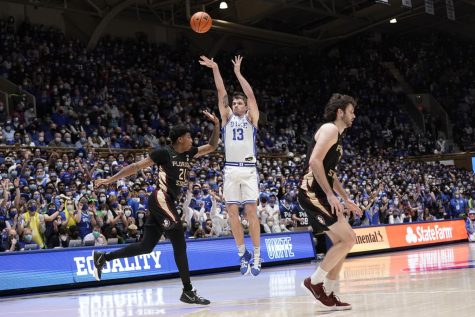
(AP Photo/Gerry Broome)
These facts about Capel were less important when he was a head coach at Oklahoma or VCU — good programs, but not naturally direct competitors of the Blue Devils. But the relationship with his alma mater became more complex after Capel took over the Pitt program in 2018.
By taking a job with an ACC rival, Capel was tacitly agreeing to have his relationship to the conference’s flagship basketball program referenced and dissected constantly whenever Pitt and Duke meet. And this season, ACC schedule-makers gave Pitt and Capel the honor of hosting Krzyzewski’s last conference road game, making Capel’s connections to Durham, North Carolina, even more pronounced.
The Blue Devils will roll into the Pete on Tuesday to play the last ACC road game of their head coach’s long and revered career. One of his mentees will stand on the opposite sideline, hoping to play spoiler in the penultimate game of Krzyzewski’s last lap around the conference.
The Panthers will enter the matchup against the ACC-leading Blue Devils having suffered two ugly losses at home — one a six-point loss to last-place Georgia Tech, the other a blowout at the hands of Miami. After winning three in a row from Feb. 9 to 16, the Panthers are beginning an all-too-familiar limp to the finish. Capel-led Pitt teams are 10-31 in the months of February and March combined, and Goliath stands between this year’s Panthers and an improved late-season record.
Pitt and Duke are both little more than a year removed from a 79-73 win for the Panthers at the Pete, one in which current Toronto Raptor Justin Champagnie rebounded the Blue Devils into oblivion and declared that “Pitt is back” after defeating the ACC’s bully.
But this year could not be more different. Now, Duke’s deeper, more talented and likely to enter this week ranked No. 1 overall after the AP Top 25’s top six all lost on Saturday. Pitt, meanwhile, has trended in the opposite direction and since struggled to stack wins. But as lopsided as the matchup appears on paper, the Panther star power in the frontcourt gives them a puncher’s chance.
The main attraction of Tuesday’s game will be the battle on the block between Pitt’s star sophomore forward John Hugley and one of the most complete front court players in the conference in Duke’s sophomore center, Mark Williams.

(AP Photo/Gerry Broome)
Hugley, a versatile player who can draw fouls and score around the rim at a high level, will be challenged by Williams’ length and sharp basketball IQ. Williams is far and away the league’s best shot blocker with 85 rejections this season — 14 more than the ACC’s second-best total — and a contender for conference defender of the year honors. Hugley’s skill and conditioning will be tested when running up and down the floor against such a fundamentally sound big man.
Another one of Pitt’s stars — graduate forward Mouhamadou Gueye — will likely be tasked with defending first-year phenom Paolo Banchero, who averages the sixth-most points per game in the conference and boasts the second-best odds of becoming the NBA’s No. 1 overall pick in this spring’s draft. But Gueye’s status for Tuesday’s game is in question after he sprained his wrist in the first half of last Tuesday’s game against Miami. Gueye eventually returned, but Capel decided to rest the rangy forward for much of the second half.
Both Gueye and Hugley will need to avoid fouling against their talented counterparts in order for Pitt to compete with Duke.
The Panther backcourt will also need to bring focus and discipline in order to hold their own against the relentless and athletic Duke guards. Besides the scoring from redshirt junior Ithiel Horton and senior Jamarius Burton, they and sophomore point guard Femi Odukale will need to play with serenity and intelligence. Against the defensive pressure that is sure to come, Pitt cannot afford to turn the ball over 20 times like it did against the Hurricanes.
One thing working in the Panthers’ favor is their five days of rest, which come at an opportune time, according to Capel. He said after the Miami game that his team was “tired and banged up,” like many are around the country, and added that he welcomed the break.
The Panthers are still jockeying for position in next week’s ACC Tournament, and will hope to end their regular season on an especially sweet note by upsetting the Blue Devils. Pitt and Duke will tip off at 8 p.m. on Tuesday night, with ACC Network slated to carry the broadcast.
The post Panthers to welcome No. 7 Duke for Krzyzewski’s final ACC road game appeared first on The Pitt News.
https://ift.tt/uLfg0H9Porsha Williams Shows Off A Fresh Look And Impresses Fans
Jussie Smollett’s Case Gets An Update – Is The Verdict Reversed?
Saweetie Shaves Her Head And Shocks Fans With Her Explanation
Kandi Burruss Is Shining In Her Latest Photos In A Gorgeous Velvet Pink Dress
Photos: Protest against Russian invasion of Ukraine
More than 20 protesters sang Ukraine’s national anthem, chanted “hands off Ukraine’ and carried signs saying “stop Putin” Friday afternoon at the Cathedral Lawn, in a show of solidarity for the recently-invaded nation.
The post Photos: Protest against Russian invasion of Ukraine appeared first on The Pitt News.
https://ift.tt/93nRxiGPitt’s Russia and Ukraine clubs come together to protest Russian invasion
More than 20 protesters sang Ukraine’s national anthem, chanted “hands off Ukraine’ and carried signs saying “stop Putin” Friday afternoon at the Cathedral Lawn, in a show of solidarity for the recently-invaded nation.
The protest, which included mostly college students from Pitt’s Ukrainian and Russian clubs as well as faculty from the Slavic department, lasted about an hour on Friday afternoon. The demonstration’s primary goal was supporting Ukraine, which Russian forces invaded early Thursday morning.
Photos: Protest against Russian invasion of Ukraine
The Russian and Slavic Department reached out to the members of the Ukrainian club on Thursday to invite them to a protest against the “criminal government” of Russian President Vladimir Putin.
Isabella Lewandowski, a first-year biology major and a member of the Ukrainian club, attended the protest. She said the protest wanted to show people that this isn’t something to “brush off” and that the invasion of Ukraine affects more than just eastern Europe.
“This doesn’t just affect the people of Ukraine, it affects the people here too and people of Eastern Europe, and this actually affects the whole world because Putin’s dictatorship is a lie and he’s abusing his power,” Lewandowski said.
Morgan Molnar, a first-year biology major, said she hopes that by participating in this protest students will learn more about what’s happening between Russia and Ukraine. She said she spoke to many Pitt students who were unaware of how “bad Putin is” and didn’t know where Ukraine was on a map.
“I really hope and I aspire for our generation in general and like the students here to pay attention and to understand what’s going on in the world and to open their eyes and understand that there’s things going on around the world,” Molnar said.
Lewandowksi said she hopes that after students see the protest they will want to help and learn more about the situation.
“I hope a lot of students kind of start to raise awareness about it and start talking about it,” Lewandowski said. “I don’t know, maybe students can come together and try to make care packages or like organize fundraisers and just come together and stand together.”
Adriana Helbig, the acting chair of the department of music, said her family is from Ukraine and participating in the protest was an emotional experience, as this isn’t her first time protesting against Russia.
“In 2014, when Russia invaded Crimea, I went on a hunger strike, and I felt very alone here on campus,” Helbig said. “So to be here and having the Russian club reach out to the Ukraine club in support of Ukraine is the most beautiful thing that could really be happening, getting to see that support and solidarity.”
Helbig said she appreciates and supports the people in Russia who are standing in solidarity with Ukraine. Thousands of citizens in Russia have taken to the streets to protest the invasion, under the threat of jail time.
“You see protests in Moscow against Putin and in support of Ukraine, and I would love to support every single person on the streets in Moscow, St. Petersburg or anywhere else where they’re protesting for us,” Helbig said.
Helbig said when she sang Ukraine’s national anthem alongside her peers and students she started to cry.
“I started to cry while we were singing it, because there was this part of it that says, ‘I’ll give my body and sold for our freedom’ so that kind of feeling and that passion is what I see it with all the people that I’ve been talking to and the students here today, and I know that people want to support and are just trying to see how best to help us,” Helbig said.
Helbig said she is proud of her country and her people, and she is going to do everything to support Ukraine.
“We’re not afraid,” Helbig said. “We’re not people that are just gonna bend over and let them run their tanks over our country. My people are out there fighting and so we’re doing everything here to support and help and I’m so proud.”
The post Pitt’s Russia and Ukraine clubs come together to protest Russian invasion appeared first on The Pitt News.
https://ift.tt/O01TwSqGallagher talks enrollment at Board of Trustees meeting
Amid “astonishingly large shifts” in college enrollment, Chancellor Patrick Gallagher said Friday that there are some known drivers for these changes — a forthcoming dropoff in traditional college-aged American students, the COVID-19 pandemic disrupting many students’ plans and prospective students seeming to drift towards more selective universities.
And then, he said, there are some that we “simply don’t know.”
“You’re seeing a striking split between the flagship universities, which by and large are reporting very large increases, and some less-selective systems that are seeing significant downward admissions,” Gallagher said. “I think we simply don’t know how persistent this trend will be. It has happened so fast that it is stressing the admissions processes.”
Gallagher spoke at Friday afternoon’s Board of Trustees meeting about changing enrollment dynamics in higher education, and what to expect at Pitt for the coming years as the COVID-19 pandemic subsides. He also praised achievements from different parts of the Pitt community. As part of the meeting, the board honored late chair Tom Richards, among other actions.
He walked the board through some of the many factors currently affected, or are expected to affect, college enrollment.
One is expected demographic decline due to a drop in the immigration rate, as well as the birth rate during the Great Recession, which would cause a decrease in the number of traditional high school students heading to college. But he said the expected drop has “nothing to do with” the current decline, and is “not enough to explain what’s happening right now,” since the “cliff” would not occur until 2026 — roughly 18 years after the birth rate began declining.
Gallagher added that while a decrease in international students that intensified during the pandemic “could certainly change admission levels,” it has a “relatively small effect” for several reasons, including that the percentage of these students is not large enough to drive large national changes.
He said the current dip is “completely attributable” to “demand” from students, not the “supply” of university programs, and listed several reasons he believes are behind this. These include deferral and uncertainty due to COVID-19; the job market; the cost of college; online vs. in-person options for education; test-optional admissions and an increasing number of applications per student.
Despite Pitt seeing large increases in applications — more than 50,000 for fall 2022, a nearly 57% spike compared with the previous year — Gallagher said the Office of Admissions and Financial Aid has “probably never worked harder and with less certainty about how decisions will be made.”
“We’re very proud of the fact that we’re seeing this demand. We think it reflects a very strong reputation and brand that certainty seems to be at least part of the dynamics here,” Gallagher said. “ Amidst all this uncertainty, students are electing to increase the number of applications and go for, sort of, marquee programs, high-recognition programs. I’m delighted that Pitt is in that category.”
He cautioned that these changes are part of a national dynamic with “uncertain impacts,” given that many schools are not significantly increasing their class sizes and thus rejecting more students, which Gallagher called “not sustainable in the long run.”
Gallagher also praised achievements from various community members later in the meeting.
He highlighted the recent book “Until I am Free: Fannie Lou Hamer’s Enduring Message to America” by Keisha Blain, an associate professor of history, which Smithsonian Magazine named as one of the 10 best history books. He also mentioned that two Pitt projects arrived late last year on the International Space Station, one of which is a high-resolution telescope “about the size of a toaster oven” which is strong enough to be able to see a parked car.
The post Gallagher talks enrollment at Board of Trustees meeting appeared first on The Pitt News.
https://ift.tt/z2haN75Jay Darr to become new associate dean of students for wellness
Jay Darr, director of the University Counseling Center, will step down on March 1 from his director position to assume the inaugural role of associate dean of students for wellness.
As the associate dean, Darr will oversee the student wellness team in the Division of Student Affairs, as well as campus recreation, Student Health Service and the UCC. According to University spokesperson Janine Fisher, Darr will also provide leadership for “high-level crisis interventions” along with addressing issues with “students of concern” and student wellness issues at Pitt.
“Dr. Darr will lead efforts to connect wellness resources and to provide seamless service and support to students,” Fisher said.
Ahmed Ghuman, associate director of strategic programs and services at the UCC, will become interim director of the UCC starting in March.
Darr started as UCC director in February 2019. Prior to working at Pitt, Darr served as the clinical liaison and coordinator at the University of North Texas in Denton.
In addition to the UCC’s change in leadership, Marian Vanek, the executive director of Student Health Service, will step down from her position on May 1. Vanek was appointed as executive director in 2010. Prior to her role at Pitt, she worked in the field of healthcare administration for 21 years.
According to Fisher, Student Affairs appreciates Vanek’s “tireless efforts” during her time at the University especially in health services, and noted that her leadership led to the SHS receiving recognition as a “best practice” service by the Accreditation Association for Ambulatory Health Care.
Fisher said the University will conduct a national search for the UCC and Student Heath directors. She said Pitt hopes to fill the positions by fall 2022.
The post Jay Darr to become new associate dean of students for wellness appeared first on The Pitt News.
https://ift.tt/nVY50umBoard honors Richards, approves Choudhry as CIO
Pitt’s Board of Trustees honored late chair Tom Richards at its Friday afternoon meeting, praising him and his commitment to the University.
Richards passed away in late October at 66, following a battle with cancer. A native of nearby Aliquippa, Pennsylvania, Richards served as starting point guard for the men’s basketball team and enjoyed the 1973-74 season, with a 22-game winning streak and narrow miss at The Big Dance. Richards later spent several decades in the technology industry.
Chancellor Patrick Gallagher said during the meeting that Richards was “a very dear friend and colleague.” Mary Ellen Callahan, the vice chair with the most seniority, chaired the meeting and called a moment of silence for Richards and other community members lost during the pandemic. She said the board would select a new chair at its June meeting.
Board members read a resolution of appreciation for Richards, which said in part that they “express their sincere appreciation and profound gratitude” for his contributions to the University community and “cherish the warm memories of their personal and professional associations.” The resolution passed unanimously. He has also been honored with an engraved bench in the Heinz Memorial Garden for his service as board chair.
The board also formally approved Jeffer Choudhry as the University’s new chief investment officer and an officer of the University.
Pitt originally named him late last month as the successor to Gregory Schuler, who left last year to pursue other opportunities. As CIO, Choudhry is responsible for managing the University’s roughly $5.6 billion Consolidated Endowment Fund. Before joining Pitt, he served as the senior managing director and head of investments at nearby Carnegie Mellon University since 2019.
The board’s compensation committee met later Friday afternoon to approve Choudhry’s compensation package. He will receive a base annual salary of $700,000, with the opportunity for incentive payments up to 70% of base pay for each fiscal year, based on “qualitative and quantitative factors.”
The post Board honors Richards, approves Choudhry as CIO appeared first on The Pitt News.
https://ift.tt/nVY50umOpen Lab opens doors for new skills for Pitt students to cultivate
Whether it’s the need for a last minute Christmas gift, a special school project or a few hours to relax in a virtual reality — the Open Lab is equipped to help students with endeavors.
There are currently two Open Labs on campus, one on the first floor of the Hillman Library and one in the basement of Alumni Hall. The Open Lab located at Alumni Hall is part of the Center for Teaching and Learning, and the lab at the Hillman location is a collaboration of both the Center and the University Library System.
Aaron Graham, the manager of the Open Lab Makerspace, said the goal of the space is to promote a well-rounded learning environment through a number of resources, including virtual reality, 3D printing, laser cutting and engraving vinyl. Graham said they’re also looking to add sewing resources in the space.
“Our mission is to support teaching and learning at the University,” Graham said. “We provide training resources and equipment to students, faculty and staff.”
Jess FitzPatrick, the director of the Digital Narrative and Interactive Design major and a lecturer in the English department, is a frequent visitor of the labs. She thinks the labs have been very helpful for DNID majors, as they offer various technologies for them to explore the world.
“The DNID is a combination of the School of Computing and the English department for students who are really interested in experiences and careers that deal with world building through writing and code,” FitzPatrick said. “We have three kinds of branches — game design, critical making and online media, and the open lab supports all of those branches.”
FitzPatrick believes that the Open Labs enhances the quality of the classes she teaches, allowing students and staff to work collaboratively.
“Now, when I’m able to bring classes for full class period visits, the best thing is working collaboratively with the people who run the open lab to design learning goals that really take full advantage of what they have,” FitzPatrick said.
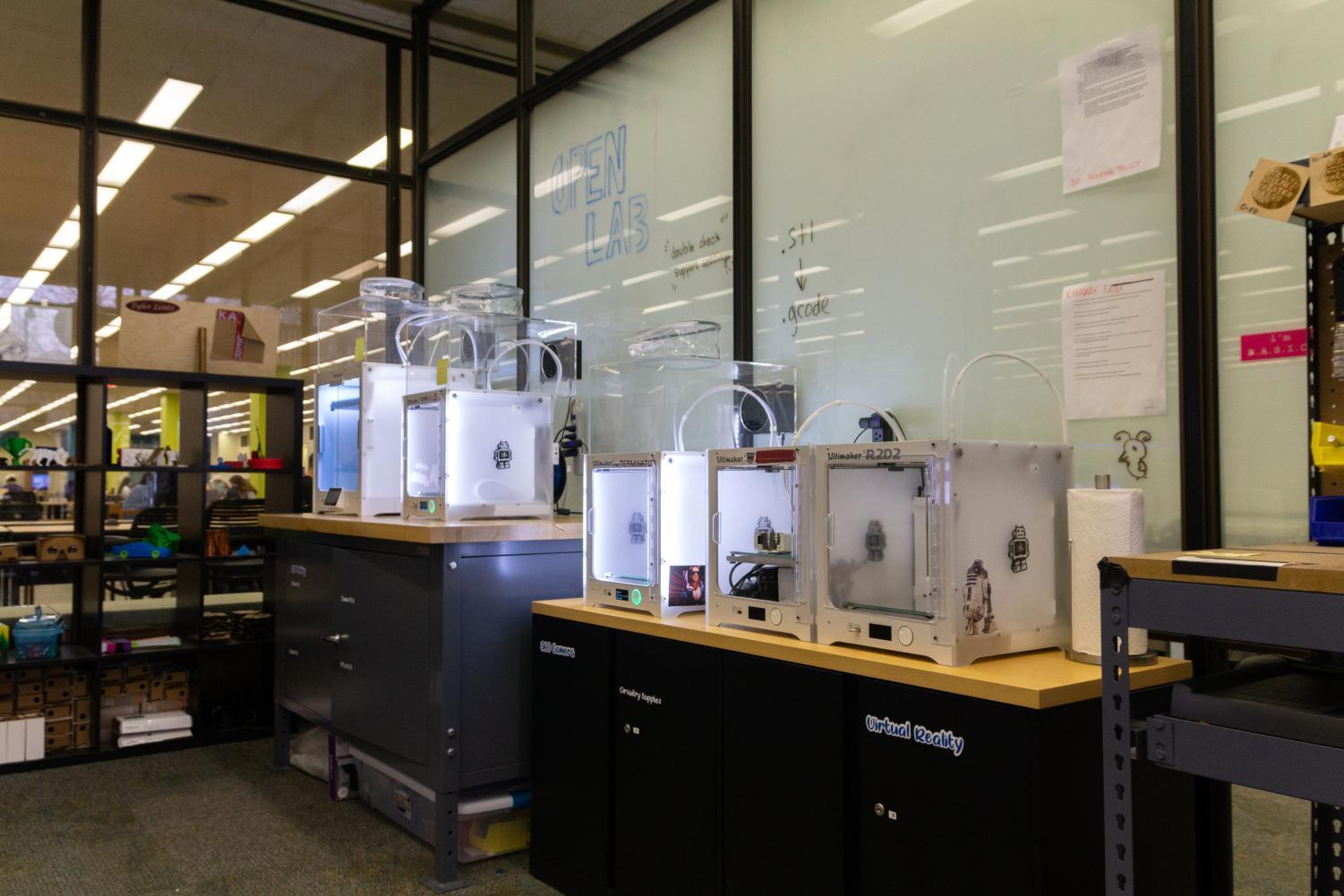
FitzPatrick said this collaborative style of learning makes diverse resources accessible to her classes in the lab, enabling students to better understand the content they are learning.
“If we’re in a narrative and technology class, and we’re talking about virtual reality and how immersive media challenges the way that we put together a story, bringi as ng a class and setting up a list of different titles in different genres that they’re going to experience and then talking through those experiences as player and audience,” FitzPatrick said.
Graham also said the lab supports “a whole gamut of different things,” including English, language, classics and art courses. He added that while the technology may seem intimidating to a beginner, there’s a whole staff willing to help.
“It’s really just about what vision people bring to bear with the resources that we have available here,” Graham said.
Graham said the Open Lab can support all majors — even the ones you would never think needed it.
“So, for instance, we have language courses that come in, and they use Google Earth VR to travel to places like Russia,” Graham said. “And then they’re, like, you know, walking around Moscow, using their vocabulary skills to describe the things they’re seeing in these group settings is really cool.”
Graham also said that although much of the work done in the lab is academic, it is not the sole focus of the space.
“We do it for not just course related projects, but for personal projects as well,” Graham said. “We believe that teaching happens inside and outside of the classroom. We have people who come in and use virtual reality for class projects, but we have people who come in to use it for fun as well.”
One of the people who has used the space for a personal project is Dan Kaple, digital creation specialist at the Center for Teaching and Learning. He’s scanning family photos as a keepsake.
“I have boxes of old negatives and boxes of old family photographs, and I’ve just been slowly going through the process of scanning all of those and then putting them onto multiple hard drives and distributing them to all my family members,” he said.
FitzPatrick said the maker spaces are a great opportunity for students to learn without financial or technical barriers.
“I think having maker spaces like the Open Lab where students and faculty and staff can go and just try things and learn things and don’t have to worry about economic barriers, or technical skill set barriers, indicate one of the more positive values about us as an educational institution and as a community,” she said.
The post Open Lab opens doors for new skills for Pitt students to cultivate appeared first on The Pitt News.
https://ift.tt/WHOIZytOpinion | Body acceptance is a means of anti-capitalist resistance
Kim Kardashian has recently been spotted with a smaller backside, and internet theorists believe she’s dissolved her Brazilian Butt Lift, or BBL for short. I typically abhor our culture’s obsession with women’s bodies, but today I’m discussing Kim Kardashian’s butt in full.
In fact, I’m talking about every woman’s body. I don’t know a single woman who doesn’t hate some part of her body, myself included. Studies show that around 50% of 13 year-old girls are unhappy with their bodies, and this number skyrockets to 80% by age 17. As many as 60% of middle-aged women believe they are too heavy. Americans spend more than $16 billion on cosmetic surgeries annually, and in 2020, there was a 66% increase in eating disorder hospital admissions. Our body shame is a public health crisis.
The body shame epidemic thrives thanks to late-stage capitalism. With that, I propose an antidote to our misery — if you wish to seize society’s tools of oppression, your most radical means of resistance is self-love.
What was our world before the Kardashians? The ‘90s were all about bony Kate Moss, who famously said, “Nothing tastes as good as skinny feels.” Britney Spears’s VMAs performance in 2001 woke the nation to tight abs and low-rise jeans. Then, Michelle Obama inspired an era of toned arms. That takes us to the 2010s, the age of “Anaconda,” “All About That Bass,” and Kim K breaking the internet.
Now, the world’s most influential style icon is changing her body. Again, why is this important? Note the timing of this alleged BBL reversal. We are experiencing the onset of Y2K nostalgia. Brands are selling Britney’s famous “Dump Him” shirt. Low-rise jeans are back. We’re leaning into bright pink and butterfly clips. Britney is free, but attaining her aesthetic is not.
The environmentally and ethically poisonous fast fashion trend cycle markets hoards of cheap, mass-produced clothing, bringing in massive profits for corporations such as Shein, Forever 21 and H&M. Your wardrobe can change, but the body you grew yourself is a permanent fixture. And still, permanent fixtures are expected to go in and out of vogue like skinny jeans.
What happens when your body is no longer the ideal? Of course, you’re not an uber-rich full-time hot person. You buy the resistance bands and the booty pads and the waist trainer and those ab activators that don’t work. If you’re not an expert in fitness, which most people aren’t, you’ll probably hire a personal trainer, join a gym or employ a dietician. To afford these products and services, you work for hours, leaving no time to exercise like a celebrity.
So you don’t have the butt, but thinness is timeless, right? So you buy the Kourtney Kardashian appetite suppressant lollipops and the Keto snacks and the $300 juice cleanse. Maybe you starve yourself. Perhaps you binge and purge. You spend thousands and torture yourself for the perfect body. But is it YOUR perfect body or someone else’s ideal?
Society’s beauty standards did not appear out of thin air. Corporations have been igniting women’s insecurities for centuries. Sleeveless dresses became all the rage in 1915. Gillette, who previously sold only men’s razors, released an ad declaring that “the underarm must be as smooth as the face” to complement sleeveless dresses, expanding their clientele to women. Did women think, “Hmmm, are my hairy armpits disgusting, or is this company selling me a new insecurity?” Of course not. It was 1915, and the phrase “read theory” didn’t exist.
Those millions of dollars line the pockets of, no surprise, rich white people — usually men. As of 2020, white men make up 85.8% of Fortune 500 CEOs, and white women are 6.8%, making white people 92.6% of all Fortune 500 CEOs. And Kim Kardashian, a white woman worth an estimated $1 billion, profits off an aesthetic that has been a source of shame and oppression for Black women for years. Capitalism, the patriarchy and white supremacy thrive hand-in-hand when they conceive new ways to police and demean marginalized bodies. And that should piss you off.
Let that anger fuel an audacious love of self. Society’s oppressors want you to look in the mirror and hate every ounce of fat. But why should you hate what sustains you? Your body can sing, dance, hug and jump for joy, so treat it with grace and dignity. Eat what energizes you. Work out, not for aesthetics but for endorphins. And above all else, recognize your joy as a sociopolitical superpower.
Paige Wasserman (she/her) writes about the arts, pop culture, campus culture and things that make her want to scream. You can reach her at PLW15@pitt.edu.
The post Opinion | Body acceptance is a means of anti-capitalist resistance appeared first on The Pitt News.
https://ift.tt/nVY50umEditorial | Ukraine needs support, not memes or infographics
Russia invaded Ukraine early yesterday morning, with explosions in Kyiv along with many other Ukrainian cities. Since the invasion, 40 soldiers and as many as 10 civilians were killed as Russian troops continued to invade, taking over a military base in northern Ukraine.
Impending war is a real reality for the citizens of Ukraine, yet many in the United States have taken to Twitter and TikTok to make memes about a potential draft or joke that it’s World War III. Additionally, people have also taken to making infographics — making it easy for people to spread misinformation. These jokes are not funny, as many people are genuinely fearing for their lives or their family’s lives. War isn’t the chance for you to go viral — especially when it isn’t affecting you outright.
Coping with humor is one thing, but when it comes to a tragedy that has already claimed lives yet isn’t affecting those in the United States, it is tasteless. If the conflict was happening here, Twitter and TikTok would look very different — people would be called out for making jokes during a tragedy. Just because people may feel somewhat removed from what is going on at the Ukrainian border, doesn’t mean those who are actually fearing for their lives are able to joke about it.
There is a difference between being concerned about the potential for U.S. involvement in the conflict and making jokes as the Ukrainian people suffer. While President Biden said he is imposing stronger sanctions on Russia and signed off on deploying NATO troops, he made it clear that U.S. troops will not be engaged in direct conflict. Making jokes about a potential draft is not only insensitive, but it’s also just incorrect.
For the people in Ukraine right now who are not sure what the future holds or for those in the United States with family abroad who are in serious danger, people on social media making jokes or posting infographics isn’t helping — they are adding to the cacophony of opinions and misinformation that is harmful to those suffering and those who want to help.
For the Americans and others around the world who are making memes or generally just trying to spread misinformation, sometimes it’s better to just stay informed and be empathetic to those actually suffering. Citizens in Russia have taken to the streets to protest the invasion, even with the threats of jail or worse. Ukrainian citizens fear another attack like the ones of Thursday morning. These are real people with real fears of impending war and conflict — it’s important to stay informed about the situation yet not make memes and trivialize it.
Taking to Twitter and TikTok for “dark comedy” is harmful. Decades of conflict have set the stage for this invasion and this conflict has affected real people. Memes are supposed to be funny, not a way to hurt others who already feel hurt by real-life conflict.
The post Editorial | Ukraine needs support, not memes or infographics appeared first on The Pitt News.
https://ift.tt/nVY50umSGB creates new social media rules for 2022 election
With the Student Government Board election less than a week away, this year’s candidates have to comply with a few new rules.
SGB’s elections committee revised the existing code following last year’s controversial election, which led to a high level of scrutiny for board members and a feeling of distrust among students. Marcus Edelstein, the chair of the elections committee, said the updated code allows the committee to create and enforce rules that are not listed in the elections code and address issues specific to that year’s election.
One of these new rules addresses concerns surrounding presidential candidate Arjun Manjunath. Manjunath is a Pitt social media intern and is frequently featured on Pitt’s Instagram page, “@PittOfficial.”
The new rule listed on SGB’s 2022 elections information page says “candidates are not allowed to utilize University owned social media, department and resources to promote people to vote for them in the Election.”
Pitt spokesperson David Seldin said social media interns help the University share information and give glimpses into student life. Manjunath is frequently seen on Instagram stories on the account, which has around 46,400 followers. Manjunath declined a request to comment from the Pitt News.
Edelstein said Manjunath approached him before campaigning began and informed him of his position. The updated code allowed for the committee to tackle this issue as soon as it presented itself.
“We know he’s on PittOfficial’s Facebook, Instagram, whatever you want to call it, and we wrote a rule saying, ‘if you or any of the candidates are affiliated with any University platform, AKA PittOfficial, you can’t promote yourself by saying I’m running for student president or I’m running for board, vote for me on March 1,’” Edelstein said.
Edelstein said Manjunath has not violated this rule and everything has “been going perfectly.”
“We took this into consideration a while ago, and we understood Arjun can still cooperate with his internship. He just can’t promote himself during the election,” Edelstein said.
Seldin said Pitt is also working to ensure that social media privilege is not being abused, and that they take measures to prevent misuse of the platform.
“Interns work with the social media staff in a structured way, in part to ensure that no one uses the platform to advance a personal or political agenda,” Seldin said. “They do not have the ability to post content to University channels independently.”
Danielle Floyd, the other presidential candidate and SGB’s current vice president of initiatives, said both presidential candidates want the election to be as fair and straightforward as possible. She said she thinks the elections committee handled the situation with Manjunath’s Pitt position well.
“[The new rule] keeps everything on a fair playing field,” Floyd said. “I know that’s something they’re actively moderating and making sure that it’s being held to that standard.”
A few of the rules for SGB campaigning on social media are that all posts made for the purpose of campaigning must list the date of the election and web address to vote, follow any University or website rules or regulations and any Federal, State or local statutes, and that it must not be used by candidates, campaign managers or campaign staff as a means of defaming or promoting any other candidate or slate.
Floyd said social media can be a great asset when campaigning, but going out to meet new people and forming new relationships is equally as beneficial.
“Social media is such a great and powerful tool to utilize and it’s really important for us to keep up with that, especially because I know most students use Instagram,” Floyd said. “But, I think nothing replaces getting out there, talking to students, attending their GBMs and hearing those concerns. I’m hoping to utilize both of those different approaches overall in my campaign.”
Edelstein said this year’s campaigning efforts have been in compliance so far, and that he hopes the events that took place last election do not result in a hesitation to vote this year. Edelstein said the biggest message he is trying to relay to voters is that “your vote actually means a lot.”
“We want people to participate in this democracy, and I don’t care who anyone is, what they look like, what their beliefs are, I just want them to vote because SGB does a lot of things that directly impact the University of Pittsburgh, like controlling a $900,000 budget or implementing bills that could change things like student health services or study spaces,” Edelstein said.
The SGB election will be held on March 1 from 8 a.m. to 8 p.m. Students can vote by visiting pi.tt/sgbelections and more information about the election can be found on the SGB website.
The post SGB creates new social media rules for 2022 election appeared first on The Pitt News.
https://ift.tt/nVY50um





